Allergies
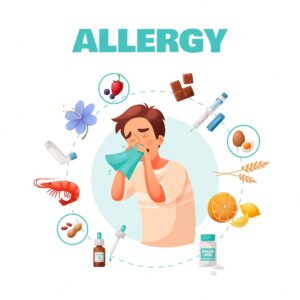
Allergies are reactions of the immune system that occur when the body reacts to a foreign chemical substance as if it were harmful. While most people’s immune systems do not react to these substances, those who are allergic have an overactive immune response that can result in a variety of symptoms and, in some cases, severe reactions.
Types of Allergies:

1.Seasonal Allergies:
Also known as hay fever, seasonal allergies are caused by pollens from weeds, grasses and trees and manifest themselves during particular seasons. Sneezing, runny or blocked nose, itchy or watery eyes, and tiredness are common symptoms.
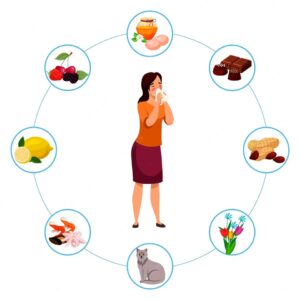
2.Food allergies:
Specific foods, including nuts, dairy, eggs, shellfish, and more, can cause these allergies. Reactions can lead to life-threatening anaphylaxis as well as mild hives.
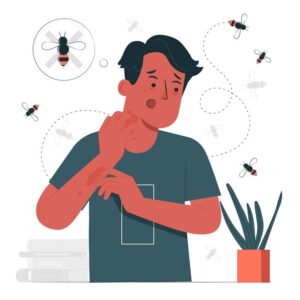
3. Insect Sting Allergies:
Allergies to insect stings or bites, such as bees, wasps or ants, can cause allergic reactions in some people. Local swelling, itching and, in severe cases, difficulty breathing can all be symptoms.

4. Drug allergy:
Some drugs can result in allergic reactions that manifest as skin rashes, hives or more severe reactions including anaphylaxis. Any drug sensitivities must be disclosed to medical professionals.
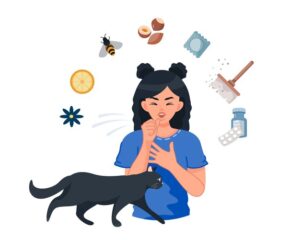
5. Pet allergies:
Allergic reactions to pet dander (skin cells, fur, or feathers) are frequent and result in symptoms such as a runny nose, congestion, and itchy skin.
Here are a few homemade remedies that could potentially help alleviate allergy symptoms:

1. Saline Water Nasal Wash:
Rinsing your nasal passages with a saline solution (a solution of salt and water) will provide relief from sinus-related allergy symptoms and congestion.

2. Steam inhalation:
The steam from a bowl of hot water can help in opening the airways and reducing congestion. Adding a few drops of eucalyptus or peppermint essential oils will help ease the discomfort even more.
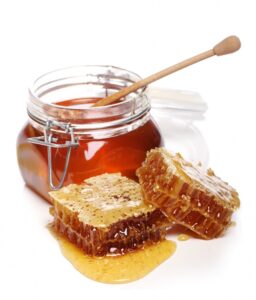
3. Honey:
Consuming honey from a nearby source can provide relief from seasonal allergies. Hypothetically, if you consume small amounts of local pollen through honey, your body may gradually become less sensitive to pollen. However, there is not much scientific evidence for this.

4. Foods Rich in Quercetin :
Quercetin is a natural substance that can be found in many foods, including apples, onions, and berries, and may have anti-inflammatory and antihistamine properties. Adding these foods to your diet may help.

5. Adequate hydration:
Staying hydrated can help reduce symptoms of some respiratory allergies and thin mucus.

6. Peppermint Tea:
Peppermint tea can soothe a sore throat and help with congestion.
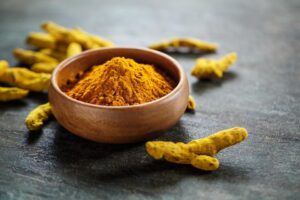
7. Turmeric:
Turmeric contains curcumin, which has anti-inflammatory properties. Including turmeric in your diet may help with the general inflammation associated with allergies.

8. Clean living space:
Regularly cleaning and dusting your living space can help reduce the risk of indoor allergens like dust mites and pet dander.
Remember that although these remedies may provide momentary relief for minor symptoms, they are not a substitute for seeking professional medical advice and receiving treatment. If your allergy symptoms are severe or long-term, it is important to speak with a health care professional to decide the best course of action for your particular case.